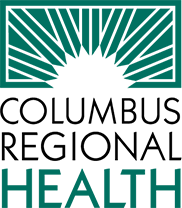Kidney Disease: What you need to know
Did you know our kidneys perform a life-sustaining job of filtering and returning to the bloodstream about 200 quarts of fluid every 24 hours?
These little workhorses of the human body filter blood and get rid of toxins (released in our urine), keep the right amount of fluids in the body, help make red blood cells and help keep blood pressure under control. Needless to say, our kidneys (each about the size of our fist) are pretty important. Yet, more than 37 million Americans suffer from kidney disease, and 40 percent of Americans are unaware they have kidney disease.
Chronic kidney disease (CKD) is the gradual loss of kidney function. When CKD reaches an advanced stage, dangerous levels of fluid and toxic waste can build up in your body.
- fatigue and low energy
- trouble concentrating
- poor appetite
- difficulty sleeping
- muscle cramping at night
- swollen feet and ankles
- puffiness around your eyes, especially in the morning
- dry, itchy skin
Of course, some risk factors make certain people more susceptible to kidney problems. African Americans, Hispanic, Asian, Pacific Islander, American Indians and Alaskan Natives are at a higher risk for developing kidney disease. Other risk factors include:
- Diabetes
- High blood pressure
- Being 60 years or older
- Having a family member with kidney disease, diabetes, or high blood pressure
Your primary care physician can help you monitor for healthy kidney function; and if you or a loved one is experiencing problems or symptoms, your doctor can refer you to a kidney specialist, also called a nephrologist. Advanced CKD needing kidney replacement is called end-stage kidney disease and is most often treated by dialysis or transplant.
How to keep your kidneys healthy
There are many things people can do to promote kidney health:
- schedule regular appointments with your family physicians
- keep blood sugar, blood pressure, and cholesterol under control
- maintain a healthy weight
- eat healthy meals
- take all medicines as prescribed
- exercise regularly
- don’t smoke
- limit alcohol
- avoid some over-the-counter medicines (such as Aleve, naproxen or ibuprofen)
View All Success Stories
These little workhorses of the human body filter blood and get rid of toxins (released in our urine), keep the right amount of fluids in the body, help make red blood cells and help keep blood pressure under control. Needless to say, our kidneys (each about the size of our fist) are pretty important. Yet, more than 37 million Americans suffer from kidney disease, and 40 percent of Americans are unaware they have kidney disease.
Chronic kidney disease (CKD) is the gradual loss of kidney function. When CKD reaches an advanced stage, dangerous levels of fluid and toxic waste can build up in your body.
What are the symptoms of CKD?
Most people do not have severe symptoms until their kidney disease is advanced. Significant symptoms include:- fatigue and low energy
- trouble concentrating
- poor appetite
- difficulty sleeping
- muscle cramping at night
- swollen feet and ankles
- puffiness around your eyes, especially in the morning
- dry, itchy skin
Of course, some risk factors make certain people more susceptible to kidney problems. African Americans, Hispanic, Asian, Pacific Islander, American Indians and Alaskan Natives are at a higher risk for developing kidney disease. Other risk factors include:
- Diabetes
- High blood pressure
- Being 60 years or older
- Having a family member with kidney disease, diabetes, or high blood pressure
How to keep your kidneys healthy
There are many things people can do to promote kidney health:
- schedule regular appointments with your family physicians
- keep blood sugar, blood pressure, and cholesterol under control
- maintain a healthy weight
- eat healthy meals
- take all medicines as prescribed
- exercise regularly
- don’t smoke
- limit alcohol
- avoid some over-the-counter medicines (such as Aleve, naproxen or ibuprofen)
Nephrology and Hypertension Services
Columbus Regional Health is pleased to offer an excellent multidisciplinary care team for both inpatient and outpatient nephrology and hypertension services, including inpatient, outpatient and in-home dialysis. Learn more about our excellent provider and care team and the wide range of treatments and services.

Dr. Jasuja is the medical director for nephrology and hypertension services at Columbus Regional Health.

Dr. Jasuja is the medical director for nephrology and hypertension services at Columbus Regional Health.

CRH News
-
Final Two CRH Practices Move to NexusPark
Apr 18, 2024, 12:36 PM by DeClue, A.CRH at NexusPark officially opened in late January, and more than 15 provider practices and services have relocated to the space in the first quarter of 2024.Full story -
Wound Center Receives National Awards
Apr 3, 2024, 15:21 PM by DeClue, A.The Wound Center achieved outstanding clinical outcomes for twelve consecutive months, including a patient satisfaction rate higher than 92 percentFull story -
CRH conducting independent public health survey
Mar 26, 2024, 12:41 PM by DeClue, A.Columbus Regional Health is conducting a Health Status Survey by telephone and online from March through May.Full story -
Columbus Regional Health offers new online health portal for expectant parents
Mar 25, 2024, 14:21 PM by DeClue, A.With CRH’s new My Pregnancy Journey, patients can use their computers or mobile devices to review digital prenatal education from a trusted source and track important decisions and tasks that need to happen at specific pregnancy milestones.Full story -
Additional Medical Practices Move to NexusPark
Mar 25, 2024, 11:24 AM by DeClue, A.More practices and services relocate to NexusPark facility.Full story -
Eclipse office hours for CRH-affiliated services
Mar 21, 2024, 14:01 PM by Laker, J.Office hours for CRH-affiliated practices and service lines for the April 8, 2024, Total Solar Eclipse.Full story

